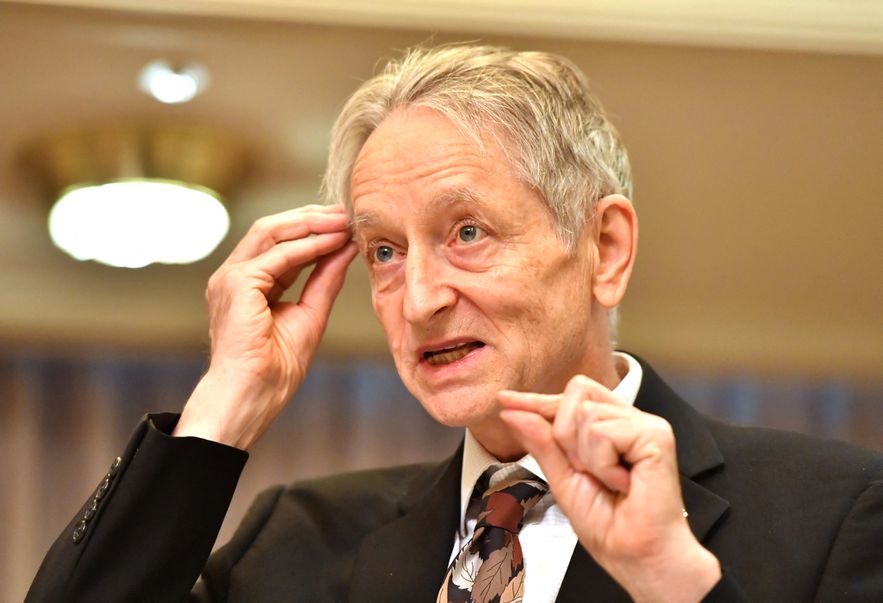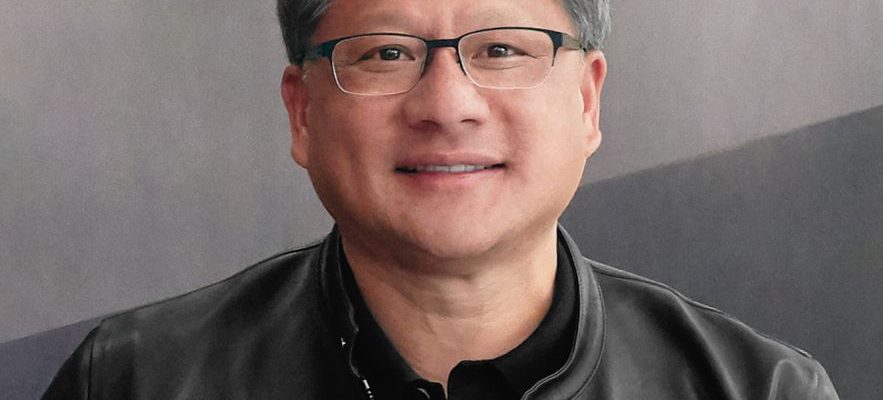Jensen Huang, new pillar of AI
Jensen Huang President of Nvidia
© / Nvidia
Emigrated to the United States at 4 years old, the Taiwanese graduate in electrical engineering participated in the design of microprocessors, these small chips which fit into various electronic devices. This amateur table tennis player founded Nvidia at the age of 30, which he still manages at 60 today. Recognized worldwide, its graphics processors (GPUs) have helped make video games very realistic. Less “pixelated”. But these chips have quickly exceeded this framework: they have become essential for learning large language models (LLM), the basis of ChatGPT and others. Nvidia recently surpassed the $1 trillion market capitalization milestone, making Jensen one of the figures of the new era of AI.
Dario and Daniela Amodei, the rivals of Sam Altman
They knew Sam Altman well. Daniela Amodei and her brother Dario both worked for OpenAI. But the commercial and closed vision of the little genius of global AI frightened them. Founders of their own company, Anthropic, the Italian siblings launched the chatbot Claude, now in its second version. The two scientists opt for a “constitutional” AI, supposed to instil “values” in a conversational agent that is more transparent and safer than its rival ChatGPT. So far, however, difficult to distinguish them. But the Amodei’s vision appeals to investors: Anthropic has already raised more than $1 billion and plans to raise four more by 2027.
Geoffrey Hinton, whistleblower

Geoffrey Hinton, the father of “neural networks”.
© / The Yomiuri Shimbun via AFP
“He’s an incredibly brilliant and very funny person.” The compliment addressed to Geoffrey Hinton, the father of “neural networks” at the origin of current progress in AI, is signed Françoise Soulié-Fogelman, scientific advisor to the Hub IA France and a leading specialist in the field. But Hinton, 75, a recipient of the Turing Prize, the equivalent of the Nobel in computer science (along with Yoshua Bengio and Yann Le Cun), recently lost his smile. Very worried, he considers the emergence of an artificial intelligence superior to man closer than ever. This would place, according to him, humanity in the face of great perils. A position that challenges because “so far, he has never been wrong”, also underlines Françoise Soulié-Fogelman.
Kate Crawford, behind the scenes of AI
Kate Crawford is an Australian researcher. She is a professor at New York University and a researcher at Microsoft. She is known for her work on the social effects of digital technology, and in particular big data and artificial intelligence.
/ © Cath Muscat
She is one of the most listened to voices in AI. Kate Crawford is an Australian researcher specializing in the social implications of this technology. She founded with Meredith Whittaker the IA Now Institute, working among other things on biases, the impact of work automation, the rights and freedoms that AI could call into question as well as the security issues that it laid. His major work, Counter-Atlas of Artificial Intelligence (2021), emphasizes the “hidden costs” of this industry which requires a lot of material, energy, and above all human resources, in order to verify and correct the nonsense still written by the machines. Which will become ultimatelyperhaps better thanks to the work of Crawford.
Andrew Ng, the teacher
He is one of the first to have measured the potential of graphics processors to multiply the calculation capacities, and therefore the learning, of AI. Otherwise ChatGPT would probably not exist. Andrew Ng, 47, founder of the Google Brain division at the American giant, now teaches at the prestigious computer science department at Stanford, California. It is distinguished by its desire to transmit basic knowledge in artificial intelligence to as many people as possible. Founder of Coursera, an online learning platform, Ng believes “AI coding will be as transformative as the spread of literacy in early medieval Europe.” Just that. His courses, AI for everyone (AI for all), is a world reference for beginners.
